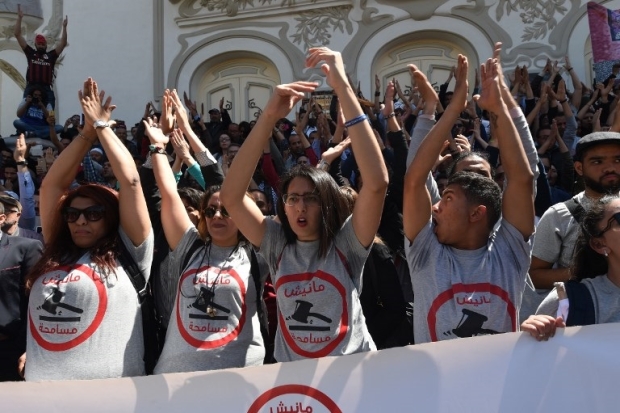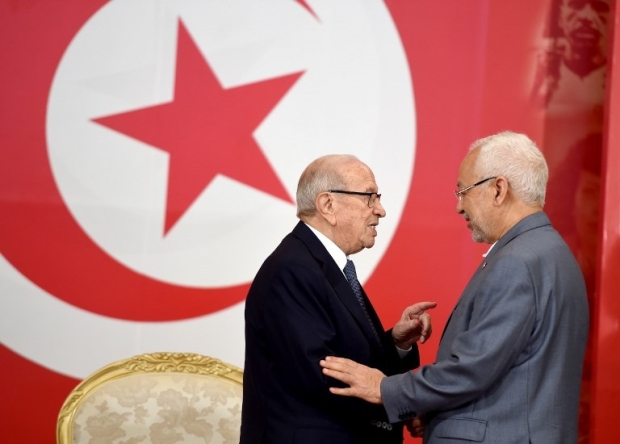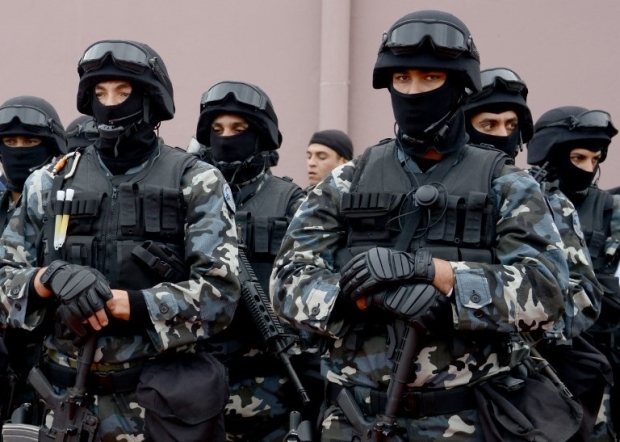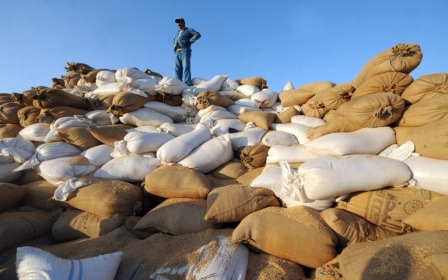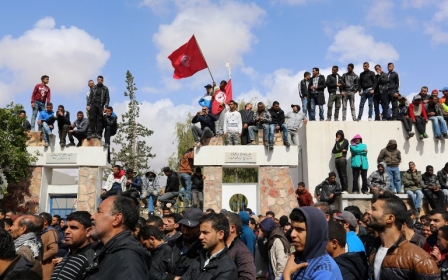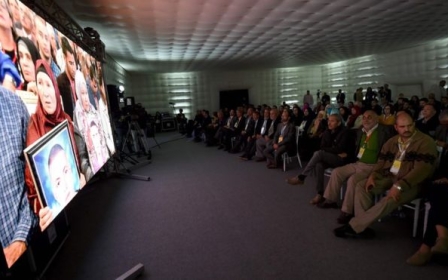'Letting go of every principle': Tunisia's democratic gains under threat
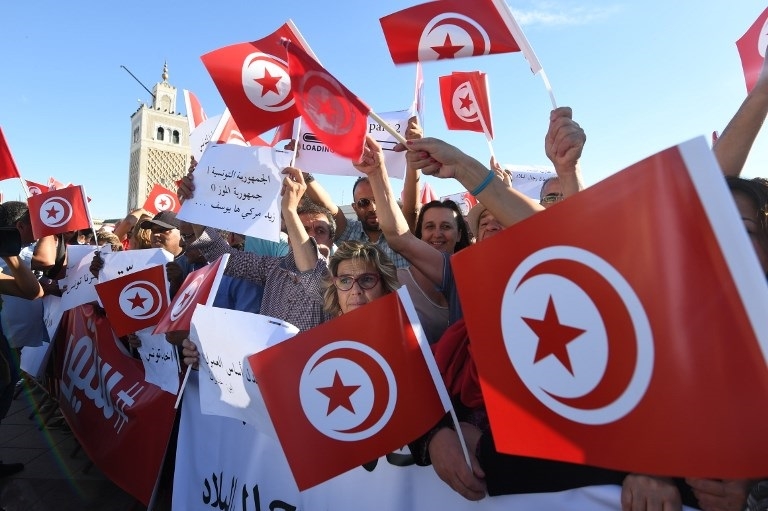
It has been a dangerous week for Tunisia's fragile democracy. Two retrogressive bills appear likely to pass parliament, possibly within days. The first would effectively amnesty public officials who committed crimes in pre-revolutionary Tunisia. The second would grant corrupt security forces more leeway to violate human rights.
Both bills undermine the quest for dignity and justice embodied in Tunisia's 2010-11 revolution
Both bills undermine the quest for dignity and justice embodied in Tunisia's 2010-11 revolution. They will almost surely become law within days or weeks unless Tunisian civil society and international actors, most importantly the World Bank and International Monetary Fund (IMF), manage to convince the government to reverse course.
Tunisia has debated both pieces of legislation since 2015. That spring, newly elected President Beji Caid Essebsi, who insisted Tunisia must focus on future development rather than on past abuses, proposed the first bill. Called the Reconciliation Law, it initially offered amnesty to two groups: corrupt businesspeople and public officials.
Defenders of the law touted its supposed economic benefits. Lifting the threat of prosecution, they said, would encourage investment in Tunisia's cash-strapped economy. They also argued that the law did not give an amnesty to the corrupt, since it promised that guilty parties would be required to repay ill-gotten gains.
Tunisia's Ministry of Interior proposed the second law in April 2015, less than a month after terrorists killed 23 people at the Bardo Museum in Tunis. Known as the Protection of Security Forces Act, it would allow security forces more leeway in using lethal force. It also contains a vague provision criminalising "denigration" of security forces.
Civil society and international rights groups opposed this law, too. They argue that it casts a broad legal net likely to ensnare peaceful protesters, journalists and other innocents deemed problematic by Tunisia's largely unreformed security forces. Security forces unions close to Nidaa Tounes, the political party founded by Essebsi, have continued to back the law even as the draconian atmosphere that prevailed in the wake of the Bardo terror attack and another attack, in June 2015 that killed 38 people at a hotel in Sousse, dissipated.
Zombie bills
Since 2015, it has periodically seemed that these two dangerous bills might disappear. Efforts to pass the Reconciliation Act have failed three times. Tunisian civil society organisations recently issued another statement denouncing the Security Forces Act.
Despite civil society's criticisms, organised political opposition against the bills is largely absent
But the bills have reappeared, zombie-like, threatening Tunisia's efforts toward accountability, justice, and democratic reform. Both bills were debated in parliament this week, and it is likely, barring widespread popular mobilisation and increased international pressure, that parliament will vote them into law as early as this week.
Despite civil society's criticisms, organised political opposition against the bills is largely absent. In fact, the three largest political organisations in the country - the ruling Nidaa Tounes party, its coalition partner Ennahda, and the powerful Nobel Prize-winning trade union UGTT - support the bills, albeit for very different reasons.
Essebsi's singular obsession with passing the Reconciliation Law has marginalised far more pressing legislative and political issues, such as the need to pass a local governance law, attract investment, seriously tackle corruption, and create constitutionally mandated independent oversight bodies, including a supreme court.
Essebsi's preoccupation with the Reconciliation Law, which remains, to date, the only law his office has proposed, has also come at the expense of reining in his son, Hafedh, whose efforts to crown himself the hereditary ruler of Nidaa Tounes have split the party and distracted its leaders from promoting a forward-looking vision.
Weak pushback
For its part, UGTT could easily stop the Reconciliation Law by threatening a general strike, a tactic it employed successfully against the previous government in 2013. In dealings with Nidaa-led governments, however, UGTT has saved its political capital to oppose cuts to salaries, subsidies and public sector employees. It has remained largely silent on the Reconciliation Law, peeking its head above the parapet to issue conditional endorsements.
Ennahda, meanwhile, has prioritised its governing alliance with Nidaa – an alliance whose future some Ennahda leaders believe hinges on their party's support for the Reconciliation Law - over its base, swaths of which strongly oppose the law.
Ennahda's behind-the-scenes lobbying of Nidaa MPs - combined with steady pressure from Manich Msamah, rising popular support for Prime Minister Youssef Chahed's recent anti-corruption arrests, and growing international pressure to clean up corruption in Tunisia - resulted in a series of amendments to the Reconciliation Act.
The law's present version omits references to corrupt businesspeople and offers amnesty only to public officials who served under the former regime.
As the Reconciliation Law mutates, arguments for its defence have become more strained. Nidaa claims it will benefit approximately 1,500 public officials - less than 1 percent of Tunisia’s total - whom Tunisia's current transitional justice process may unjustly target for simply being "obliged to obey orders". No official document supports these claims.
Some of these administrators, Nidaa says, are so afraid of prosecution that they are not doing their jobs well. One Nidaa representative told me that public officials are "so terrorised by fear of prosecution that they aren't signing important documents needed to start development and investment projects".
Opponents of the Reconciliation Law reject such defences. Instead of coddling corrupt or inefficient public officials, they say, the state should fire those refusing to do their jobs. The state should also pursue justice against the worst of them through strengthened judicial channels rather than have a "Reconciliation Commission" designed to let abusive administrators off the hook.
Emboldening bad tendencies
Experts and civil society leaders also continue to warn strongly against passing the Protection of Security Forces Act. Safeguarding Tunisia's new democratic constitution and improving efficiency amongst Tunisian security forces in the fight against terrorism, they say, requires more accountability, not less, from the security sector. This is especially true because terrorist recruitment in Tunisia is driven in part by societal disgust with existing corrupt state practices.
'The whole message of the Reconciliation Law is that there was no revolution, there were no victims'
- Oumayma Mehdi, project assistant at Al Bawsala
Civil society leaders further stress that this law would embolden the worst tendencies of Tunisia's security forces, which formed the cornerstone of its pre-revolutionary police state. These forces have a long history of violently oppressing free speech and quashing attempts at security sector reform.
For decades prior to the revolution, the Ministry of Interior, which oversees the security forces, doubled as a torture chamber. Leftist and Islamist political prisoners were abused in grotesque ways there, despite the building's location in the heart of downtown Tunis. The ministry briefly creaked its doors open to civil society groups after the revolution but slammed those doors shut following Nidaa's victory in 2014, an electoral outcome that emboldened security forces unions opposed to enhanced civilian oversight and transitional justice.
Many Tunisian civil society leaders, particularly young activists who support the anti-corruption organisation I-WATCH and the Manich Msamah movement, fear, however, that passing these two laws could neutralise or even reverse progress that Prime Minister Chahed made against corruption earlier this summer.
Some say that, rather than simply applauding the prime minister, international actors, particularly the IMF and World Bank, which can powerfully influence Tunisian policy, should do more to ensure his anti-corruption arrests become part of a cohesive and institutionalised war on corruption. Passing either or both of these laws would undermine such efforts.
In the view of Tunisia's young civil society activists, these laws are not just unnecessary: they actively communicate state support for corruption and impunity.
"The whole message of the Reconciliation Law is that there was no revolution, there were no victims," said Oumayma Mehdi, a project assistant at Al Bawsala, a well-known NGO that monitors parliamentary activity.
"It's very dangerous. If we don't encourage people to fight this, it's as if we're letting go of every principle that formed the basis of the revolution."
- Monica Marks is a research fellow with the European Research Council’s WAFAW program and a Rhodes Scholar. She was based in Tunisia from 2012-16 and has conducted over 1,200 interviews there in the course of her research.
The opinions expressed in this article are those of the author and do not necessarily reflect the editorial position of Middle East Eye.
Photo: Tunisians hold flags during a demonstration in solidarity with Prime Minister Youssef Chahed in his fight against corruption on 26 May 2017 in front of the prime ministry offices (AFP)
This article is available in French on Middle East Eye French edition.
New MEE newsletter: Jerusalem Dispatch
Sign up to get the latest insights and analysis on Israel-Palestine, alongside Turkey Unpacked and other MEE newsletters
Middle East Eye delivers independent and unrivalled coverage and analysis of the Middle East, North Africa and beyond. To learn more about republishing this content and the associated fees, please fill out this form. More about MEE can be found here.




